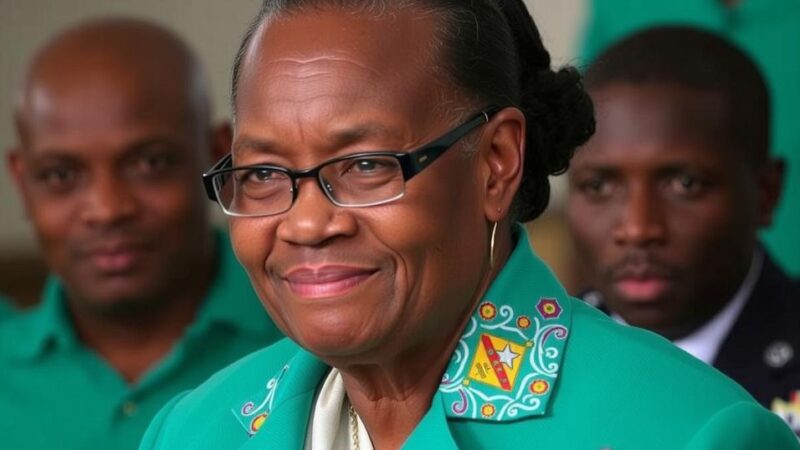Centre-left candidate Yamandu Orsi has won Uruguay’s presidential election, securing 49.77 percent of the votes against conservative Alvaro Delgado. Both candidates acknowledged the outcome, ensuring a smooth transition. The election reflects a broader global trend of diminishing support for incumbent parties amidst economic concerns. Orsi pledges a modern left approach to governance while addressing key issues such as living costs and inequality.
In a notable shift in Uruguay’s political landscape, centre-left candidate Yamandu Orsi has emerged victorious in the recent presidential election. With 97 percent of the votes counted, Orsi captured 49.77 percent, defeating conservative candidate Alvaro Delgado, who garnered 45.94 percent. Following the announcement, Orsi expressed hope for the future, stating, “The country of freedom, equality and also fraternity triumphs once again.” With a history of political moderation, both Delgado and current President Luis Lacalle Pou extended their congratulations and assistance for a smooth transition.
The election’s outcome is significant as it reflects a broader trend amidst a global electoral backdrop characterized by a diminishing support for incumbent parties. Uruguay, a nation of 3.4 million residents known for its stability and progressive policies, has typically avoided the severe political divisions seen in neighboring countries like Argentina and Brazil. Orsi campaigned on a platform of modern leftist ideals, aiming to continue Uruguay’s legacy of social equity while addressing pressing issues such as high living costs and inequality.
The victory of Orsi signals not only a shift in governance but also a response to the economic challenges faced by voters, particularly rising inflation which has increasingly strained households. His success follows a first-round performance where he received 43.9 percent of the vote, positioning him as a moderate yet progressive alternative to the conservative political establishment.
This election concludes a year filled with significant elections globally and indicates that voters are increasingly willing to reward change amid economic uncertainty. Orsi’s administration may now set the tone for Uruguay’s future policies, navigating between economic growth and social equity amidst evolving regional dynamics.
Uruguay’s recent presidential election marks a pivotal moment in its political journey, characterized by the major victory of Yamandu Orsi, a centre-left candidate, against the conservative Alvaro Delgado. This election not only highlights Uruguay’s relatively peaceful political environment compared to its neighbors but also resonates with a global narrative of shifting electoral trends where long-standing parties experience decreased support amid economic challenges. The country, recognized for its stability, recent policies such as the legalization of marijuana, and development progress, faces pressing issues including inflation and crime, which the incoming administration must address effectively.
In conclusion, Yamandu Orsi’s victory in Uruguay’s presidential election signifies a potential for progressive change in governance while remaining within the bounds of the country’s established moderatism. The cooperative transition process initiated by outgoing conservative leadership highlights the democratic values upheld in Uruguay. Moving forward, Orsi’s administration is expected to tackle economic challenges and uphold policies that promote social equity, aligning with the aspirations of the electorate in this shifting political landscape.
Original Source: www.areanews.com.au







